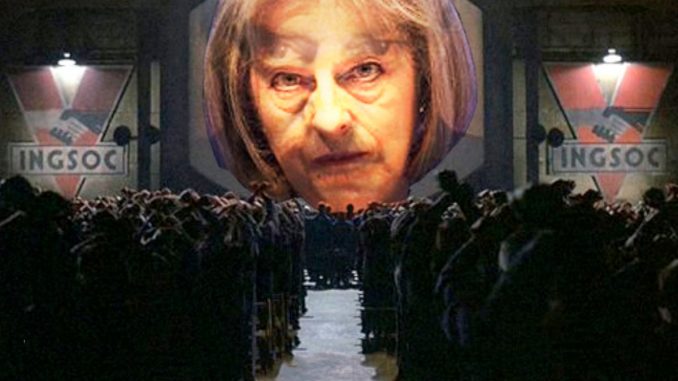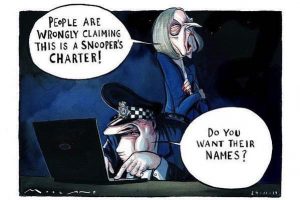
UK members of Parliament and other politicians have exempted themselves from Britain’s draconian new spying laws.
The Investigatory Powers Act better known as the ‘snoopers charter’ which has just been passed into law, brings some of the most extreme and invasive surveillance powers ever given to spies in a democratic state.

BYPASS THE CENSORS
Sign up to get unfiltered news delivered straight to your inbox.
You can unsubscribe any time. By subscribing you agree to our Terms of Use
Latest Video
However, members of Parliament, Lords, members of the devolved regional parliaments or members of the European Parliament have been given protections against those spying powers. They can only be spied on if the Prime Minister, Theresa May personally approves it
The Independent reports:
Most of the strongest powers in the new law require that those using them must be given a warrant. That applies to people wanting to see someone’s full internet browsing history, for instance, which is one of the things that will be collected under the new law.
For most people, that warrant can be issued by a secretary of state. Applications are sent to senior ministers who can then approve either a targeted interception warrant or a targeted examination warrant, depending on what information the agency applying for the warrant – which could be anyone from a huge range of organisations – wants to see.
But for members of parliament and other politicians, extra rules have been introduced. Those warrants must also be approved by the prime minister.
That rule applies not only to members of the Westminster parliament but also politicians in the devolved assembly and members of the European Parliament.
The protections afforded to politicians are actually less than they had hoped to be given. Earlier in the process, the only amendment that MPs had submitted was one that would allow extra safeguards for politicians – forcing any request to monitor MP’s communications to go through the speaker of the House of Commons as well as the prime minister.
Whether intelligence agencies should be allowed to spy on politicians has been a contentious part of recent surveillance legislation. For many years, discussions between politicians and their constituents had been treated as off-limits – and they are still seen as “sensitive” under the new legislation – but those protections have been gradually rolled back.
Internet connection records – a history of every website that someone has visited, but not every page – will still be collected for MPs, since they will be done en masse by internet providers for all of their customers. But they won’t be able to be accessed without a warrant.



